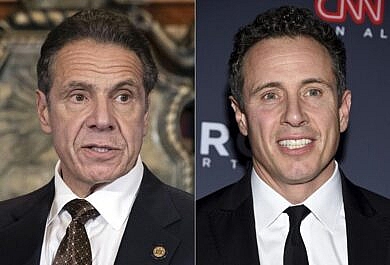As Republicans in Congress push the Biden administration for more information regarding the coronavirus’ origins, mainstream media are ignoring the story. Their narrative criticizing the theory of a lab-originated outbreak is falling apart.
Summary
Congressional Republicans have begun a formal investigation into the origins of the coronavirus, including the possibility of the virus accidentally being leaked from a high-security virus research lab in Wuhan.
- This follows more than a year of questions with few answers regarding the beginning of the pandemic, despite the fact that statements disputing an accidental lab leak “were not at first examined as critically as they should have been.”
- Earlier this year, scientists began saying the theory of an accidental lab-leak of the SARS-CoV-2 virus must be investigated, which previously had been considered “career suicide”, while the joint research conducted by China and the World Health Organization (WHO) has yet to uncover the “missing link”, whether animal or accidental transmission, that allowed the virus to jump from bats to humans in Wuhan.
- The lab-leak theory is gaining more plausibility, if not more credibility, as a group of scientists criticized the WHO and demanded more rigorous research into the virus’ origins, including the possibility it leaked from the Wuhan Institute of Virology.
- In March, Trump CDC director Robert Redfield told CNN he believes it likely the virus “escaped” from the Wuhan virus lab, while Axios called it “a stunning assertion, offered with little evidence.”
- Yet the same critical skepticism was not given to Biden officials a few days later: Last month, the Director of National Intelligence told Congress that the accidental lab-leak theory is one of the “leading suspicions” among experts regarding the virus’ origins, while the CIA Director William Burns said “China has not been forthcoming with information.
![]()
- Two days ago, Washington Post columnist Josh Rogin championed House Republicans’ investigation, saying the Biden administration has no interest in “pushing for a genuine investigation”, this being the only reference in mainstream media to House GOP’s investigation.
- The Independent, based out of the United Kingdom, snarked at the questions posed to White House press secretary Jen Psaki by a Newsmax reporter who pressed Psaki on the President’s beliefs regarding the coronavirus’ origin (basically, asking if the President agreed with some of his top diplomatic and intelligence advisors), which The Independent and Vox’s eminent out-of-context editor Aaron Rupar called “loaded.
- Last month (after the Trump presidency), USA Today published an opinion column from a former USA Today investigative reporter saying “the Wuhan lab-leak theory shouldn’t be dismissed”, criticizing the WHO for mischaracterizing the nature and frequency of lab accidents when the international agency said it is “extremely unlikely” to be the origin of the coronavirus.
- Again, a year after The Washington Post slammed Sen. Cotton and a few days after Redfield’s appearance on CNN, Rogin wrote last month that Redfield’s comments must be taken seriously, interviewing Rutgers microbiologist Richard H Ebright (remember that name) who said the very possibility of its veracity requires the world to more critically examine and understand viral research.
![]()
- Fox News led the charge on the right in reporting that the top GOP member of the House Energy and Commerce Committee is pushing Secretary of State Antony Blinken to release “unclassified documents and declassify” classified files regarding a State Department report about the Chinese military’s work with the Wuhan Institute of Virology.
- Newsmax reported on similar efforts by Rep. Mike Gallagher, a Wisconsin Republican, who is requesting information from the National Institute of Allergy and Infectious Diseases on how U.S. tax dollars have been allocated or spent at the Wuhan Institute of Virology, saying “we cannot afford to settle for a limited, blinkered, or politicized understanding of the origin” of the coronavirus.
- Wall Street Journal assistant editor and columnist James Freeman noted McMorris Rodgers’ efforts, and highlighted The Bulletin of the Atomic Scientists’ account of the investigation saying “the Chinese lab is the most likely source of the world-wide agony” while explaining that the Bulletin’s report suggests not only that it was an accidental leak but is also increasingly likely to have been man-made.
- National Review’s Jim Geraghty picks apart China’s secrecy and refusal to admit responsibility in anything, whether it’s the coronavirus or space debris pelting Africa from the skies, and scolds the media for not being more inquisitive, let alone more outraged, at China’s secrecy.
Author’s Take
A.G. Hamilton got to the very heart of the matter in April of 2020: The media willfully misconstrued (aka lied) about what Sen. Tom Cotton said regarding the coronavirus’ origins. It was not anything taken out of context, The Washington Post, New York Times, Daily Beast and others purposely gaslighted their audience. They twisted the words of Richard H Ebright, the same Rutgers microbiologist mentioned earlier, to slander Sen. Cotton and ignored Ebright’s comments that actually seconded Cotton’s suspicions.
Just over one year ago, The Washington Post and The New York Times disparaged Arkansas Gov. Tom Cotton for discussing a “fringe theory of coronavirus origins”, saying Cotton is spreading a rumor that the virus was a bioweapon released by China. The problem is Cotton never said it was a bioweapon, but that the possibility of the virus leaking from the virus lab must be investigated.
Within the span of a few weeks, we saw even the least biased of news sources, Axios, stress to their readers that a former Trump official’s statement regarding the virus’ origin was unfounded, had little evidence, and loaded their reporting with phrases such as “stunning”, then turn around and report of Biden officials effectively saying the same thing without batting an eye, while CNN uncritically reported their Senate testimony as if it was gospel.
This episode is a clear-cut example of how bias works: using loaded phrasing in reporting to frame the story, maintain different standards of skepticism from presidential administration officials depending on the political affiliation of the President, and overtly ignoring a story when it does not fit a narrative built over the course of a year.
© Dallas Gerber, 2021






